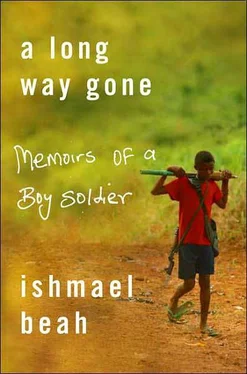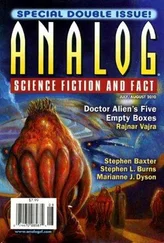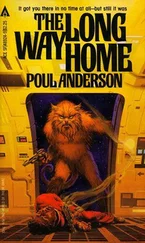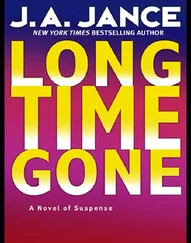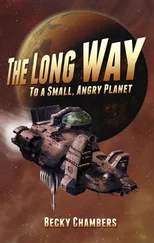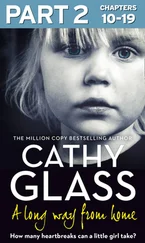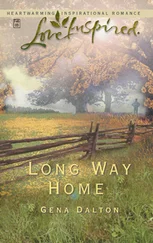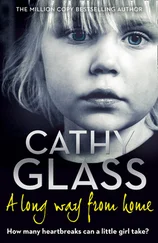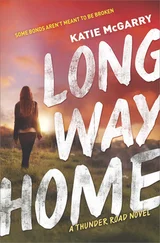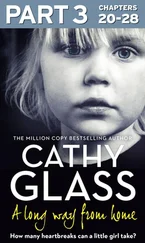I got up and left the room, leaving the door open behind me. I walked toward the box and stood by it. I stood there and waited for several minutes, but nothing happened. I didn’t know what to do to make the box come upstairs. The boys who were waiting for the interview began to laugh. Then the man who sat behind the desk walked toward me and pushed a button on the wall. The doors immediately opened and I walked in. The man pressed the number 1 button and waved to me as the doors closed. I tried to find something to hold on to, but the box was already at street level. I walked out of the building and stood outside examining its structure. I have to tell Mohamed about the inside of this marvelous building when I see him, I thought.
I walked home slowly that afternoon, watching the cars go by. I didn’t think much about the interview except that I still wondered why the man who had interviewed me had smiled. I meant what I said and it was not a funny matter. At some point during my walk, a convoy of cars, military vans, and Mercedes-Benzes festooned with national flags passed by. Their windows were tinted, so I couldn’t see who rode in them, and they were too fast, anyway. When I got home, I asked Allie if he knew of a powerful man who parades the city in such a way. He told me that it was Tejan Kabbah, the new president, who had won the election under the banner of the Sierra Leone Peoples Party (SLPP) in March 1996, eight months earlier. I had never heard of this man.
That night my uncle brought home a bag of groundnut. Auntie Sallay boiled the groundnut and put it out on a large tray. All of us, my uncle, his wife, Allie, Kona, Matilda, Sombo, and I, sat around the tray and ate the groundnut, listening to another recording of Leleh Gbomba’s. He was telling a story about how he became friends with another boy before they were born. Their mothers were neighbors and were pregnant at the same time, so the two of them met while they were still in their mothers’ bellies. The storyteller vividly described the landscape of their pre-infant life: the hunting they did, the games they played, how they listened to our world…It was a very funny story that took shockingly impossible twists and turns and left us in awe. My uncle, aunt, and cousins laughed so hard that they couldn’t stop for hours, even after the story had ended. I began to laugh, too, because my uncle was trying to say something and he was so possessed with laughter that he couldn’t say a complete word without launching into another fit of laughter. “We should do this again. Laughing like this is good for the soul,” my uncle said, still laughing a little. We wished one another a good night and went to our different sleeping places.
One morning Mr. Kamara turned up at my uncle’s house in the Children Associated with the War (CAW) van. He had told me I had been chosen to go to the UN a few days before, but I had only told Mohamed about this, as I didn’t actually believe that I was going to travel to New York City. It was before midday when Mr. Kamara arrived and my uncle had left for work. My aunt was in the kitchen; the look on her face told me that my uncle would learn about Mr. Kamara’s visit. I knew then that I would have to tell my uncle about the trip.
“Good morning,” Mr. Kamara said, checking his watch to make sure it was still morning.
“Good morning,” I replied.
“Are you ready to go to town and begin preparation for the trip?” he asked in English. Since Mr. Kamara had found out that I had been chosen to go to the UN, he had spoken only English to me. I said goodbye to my aunt and jumped in the van, and we took off to get me a passport. It seemed as if everyone in the city had decided to get passports that day, perhaps preparing to leave the country. Luckily, Mr. Kamara had made an appointment, so we didn’t have to wait in line. At the counter he presented my photo, the necessary forms, and the fee. A round-faced man carefully examined the documents and asked for my birth certificate. “You have to show me proof that you were born in this country,” the man said. I became really upset and almost slapped the man, who insisted that I must present proof of birth in Sierra Leone even after I had told him that no one had the chance to assemble documents of that nature when the war reached them. He was naïve about the reality I was trying to explain to him. Mr. Kamara pulled me aside and gently asked me to sit on a bench while he chatted with the man. Eventually he demanded to see his boss. After hours of waiting, someone was able to dig up a copy of my birth certificate, and they told Mr. Kamara to come back for the passport in four days.
“The first step is completed. Now we will have to get you the visa,” Mr. Kamara said as we walked out of the passport office. I didn’t reply, because I was still upset, exhausted, and just wanted to go home.
My uncle was home when I was dropped off that evening. When I greeted him, he had a smile on his face that said, “Tell me what is going on.” I did. I told him that I was to go to the United Nations in New York City and talk about the war, as it relates to children. My uncle didn’t believe it. “People are always lying to others with such promises. Don’t let them get your hopes up, my son,” he said.
Every morning before he left for work, he would say jokingly, “So what are we doing today in planning to go to America?”
Mr. Kamara took me shopping. He bought me a suitcase and some clothes, mostly long-sleeved shirts, dress pants, and traditionally waxed, colorful cotton suits with intricate embroidery on the collars, sleeves, and hems of pants. I showed these things to my uncle, but still he didn’t believe that I would be going on the trip.
“Maybe they just want to give you a new look, a more African look, instead of those big pants you always wear,” he joked.
Sometimes my uncle and I went for strolls after work. He would ask how I was doing; I always told him I was fine. He would put his long arms around me and pull me closer. I felt he knew that I wanted to tell him certain things but couldn’t find the right words. I hadn’t told him that whenever I went to the bush with my cousins to fetch firewood, my mind would begin to wander to things I had seen and done in the past. Standing next to a tree with red frozen sap on its bark would bring flashbacks of the many times we executed prisoners by tying them to trees and shooting them. Their blood stained the trees and never washed off, even during the rainy season. I hadn’t told him that often I was reminded of what I had missed by watching the daily activities of families, a child hugging his father, holding his mother’s wrap, or holding two parents’ hands, swinging over gutters. It made me wish I could go back to the beginning and change things.
I had been told to meet a man by the name of Dr. Tamba at the American embassy on Monday morning. As I walked to the embassy, I listened to the gradual wakening of the city. The call for prayer from the central mosque echoed throughout the city, poda podas crowded the streets, their apprentices hanging on the open passenger doors and calling out the names of their destinations: “Lumley, Lumley” or “Congo Town…” It was still too early when I arrived, but there was already a long line of people waiting outside the embassy gates. Their faces were sad and filled with uncertainty, as if they awaited some trial that would determine whether they would die or stay alive. I didn’t know what to do, so I stood in line. After an hour or so, Dr. Tamba arrived with another boy and asked me to follow him. He looked like a dignified man, so I guess we didn’t have to wait in line. The other boy, who was also a former child soldier, introduced himself. “My name is Bah. I am happy to be going on this journey with you,” he said, shaking my hand. I thought about what my uncle’s reply would be to him: “Don’t let them get your hopes up, young man.”
Читать дальше
